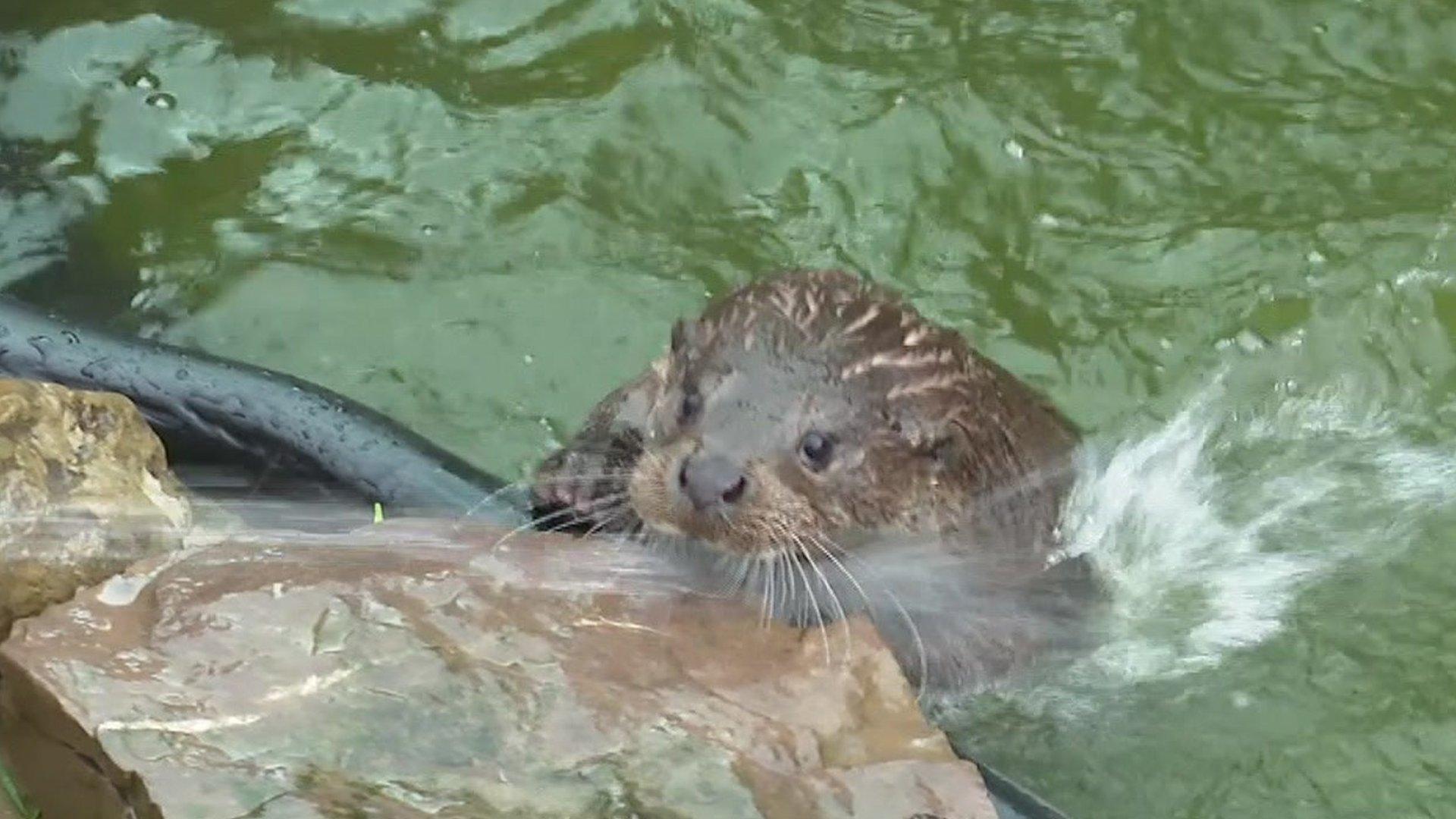Charity creates 'world's first otter ambulance'
- Published
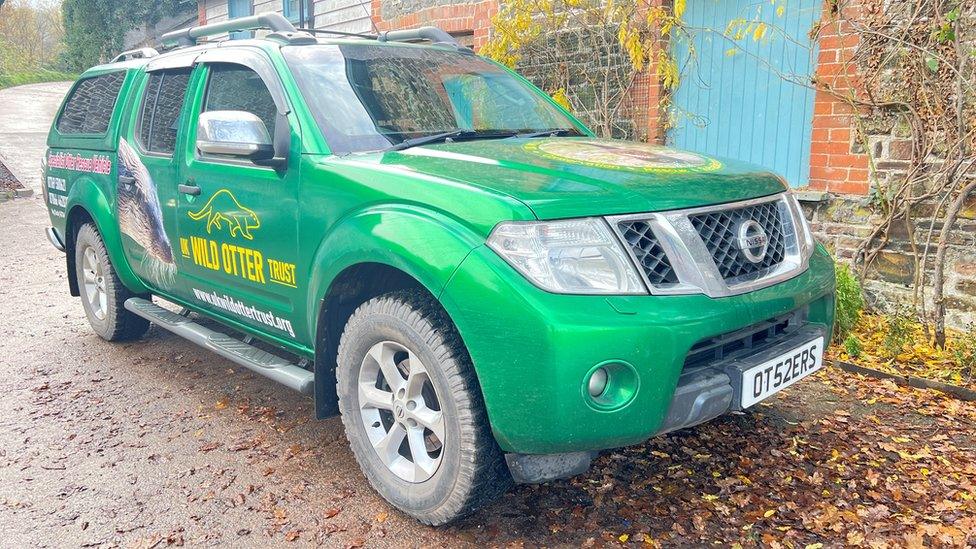
The UK Wild Otter Trust hopes the custom-built vehicle will cut response times in half
The UK Wild Otter Trust believes it has created the world's first ambulance for otters.
The charity, based in Umberleigh, North Devon, raised money for the all-terrain custom-built vehicle, which has been fitted with life-saving equipment.
Founder Dave Webb said the ambulance would cut response times in half.
The charity rescues about 30 orphaned otters a year, which are released after a year of rehabilitation.
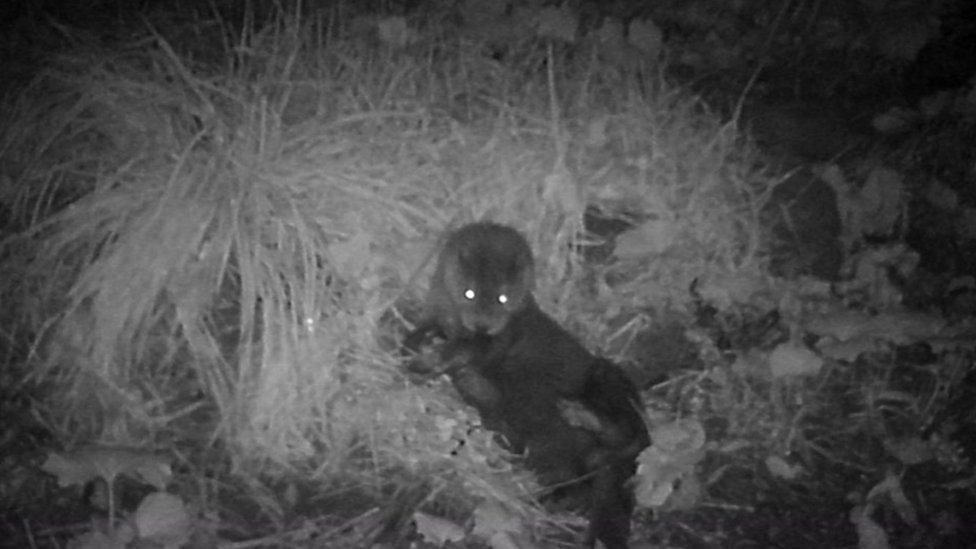
Pip was given life-saving treatment in the otter ambulance
Otter pup Pip needed urgent life-saving treatment when she was found under an apple tree in Exeter recently at just two months old.
She was collected and treated in the new otter ambulance and staff said she was thriving at the trust's rehabilitation centre.
Dave Webb said the first 24 hours were critical for the very small cubs his team rescued.
Staff said the otter ambulance was being deployed regularly across Devon, but they would travel to any location when the charity got a report of an otter in distress.
It cost the charity about £7,000 to buy the vehicle and equip it.
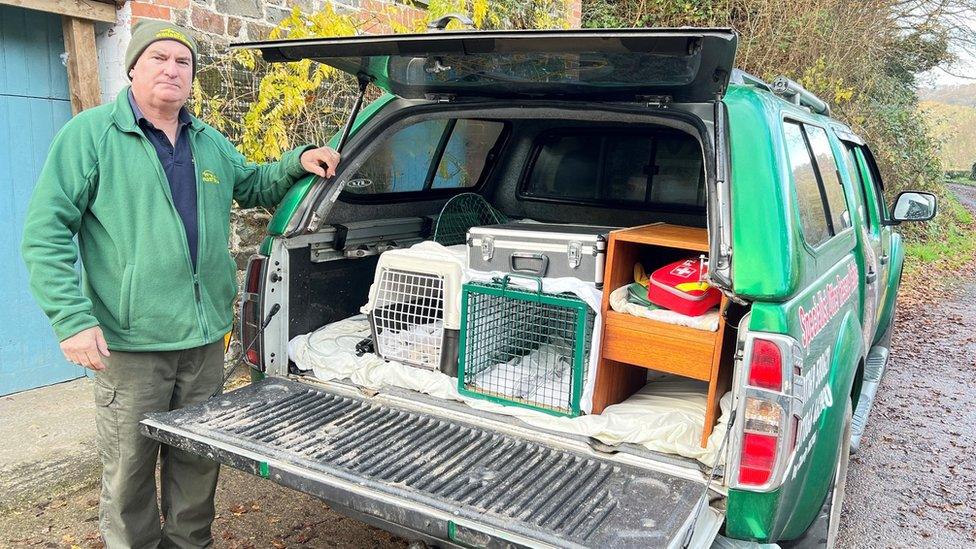
Charity founder Dave Webb says survival rates will increase because of the otter ambulance
The back of the vehicle is equipped with equipment to catch otters cubs, heated cages to transport them, antibiotics and pain-relief medication.
The charity, based in the area that inspired Henry Williamson's novel Tarka the Otter, was founded by Dave Webb nearly 20 years ago.
It started with one hut in Mr Webb's garden, but the new specialist rehabilitation centre is set in two acres with 19 enclosures, two cub rooms, a cub hospital and treatment room.
It is the largest specialist centre in the UK with a capacity to care for up to 42 animals when full.
The charity said the whole rehabilitation process took a year to complete for each animal and cost in excess of £3,000 per cub.

Follow BBC Devon on X (formerly Twitter), external, Facebook, external and Instagram, external. Send your story ideas to spotlight@bbc.co.uk, external.
- Published18 March 2023
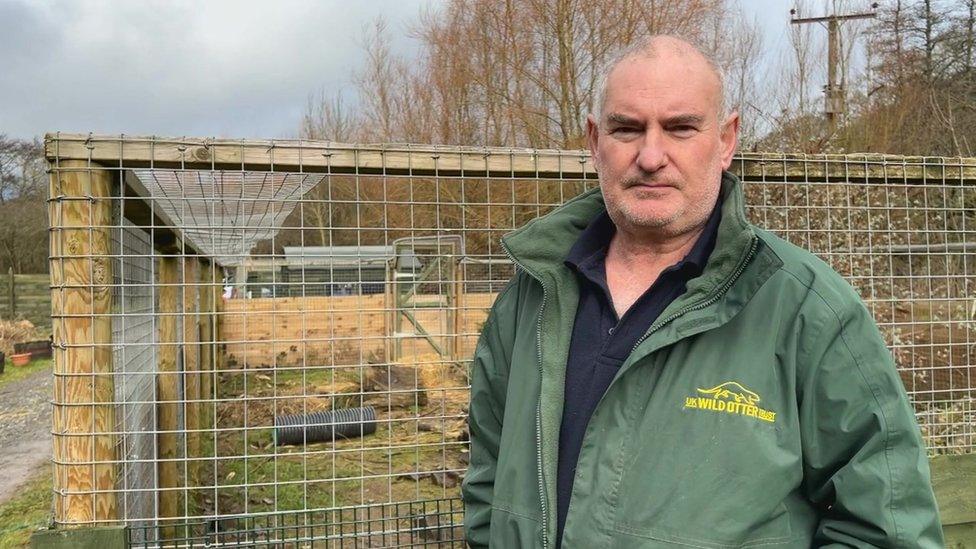
- Published6 February 2023
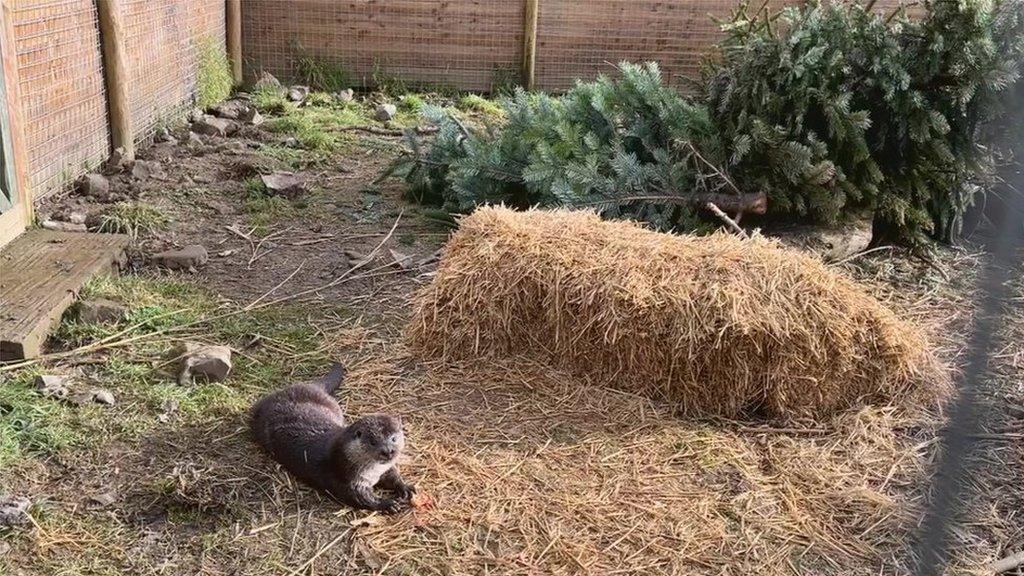
- Published2 September 2022
